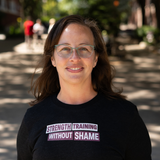Chicago 1995: The Hottest 5 Days in History
🎉 Happy Friday, Friends!
I’ve been wanting to share more of myself with you in this newsletter these days. There are parts of my life that might not feel related to “fitness” right away, but it makes sense in my brain, so I’m just going to dive in! I’ve always been a reader, but I’ve been working on making connections between my reading and self-education, especially by learning about the past. So today, I’m sharing some thoughts about a book I’ve been enjoying recently, Heat Wave: A Social Autopsy of Disaster in Chicago, by Eric Klinenberg.
This 1995 incident killed almost 800 Chicagoans in just a few days. It was a wholly avoidable disaster that the media and the mayor ignored because the people who died lived alone, were socially isolated from family and friends, and poor. Some people had prior health conditions, but nothing that should have hastened their death in this horrible manner.
I’m only about a quarter of the way through, but some of the things that have stuck with me so far:
- Some who passed were as young as 53.
- The people who passed away mostly lived alone, surrounded by all of their belongings, their only company the radio or TV news that covered every shooting or armed robbery. These things put elderly seniors so on edge that they basically put themselves on house arrest, barely leaving to deposit their social security checks. When they did, they were fearful they would be shot, even in neighborhoods that hadn’t had a shooting in years.
- Uptown was home to several Single Room Occupancy buildings that have since been turned into “market rate housing.” These SRO’s were lifelines for people who could afford to pay for one small room with a shared bathroom and kitchen access. One gentleman who lived in an SRO had written a letter to a friend asking him to visit him, expressing his loneliness. He never mailed the letter. It was found among his meager belongings when he was found deceased in his room.
- A heatwave is a different kind of disaster. The destruction done to a population isn't as evident as that of a tornado or flood or fire.
So what can we take away from this, in 2025? Many of the issues folx faced in 1995 exist today.
- Climate change means temperatures worldwide are getting warmer in places that have never needed air conditioning or cooling centers before.
- We are still cut off from our community. Divorced or widowed older women are more likely than men to live alone, but men are more likely to be cut off from a support network of people checking in on them or to reach out to.
- ”Crime rates” have dropped, but our media (not just TV and radio, but online coverage too) continues to cover every shooting with unnecessarily gory details, still stoking fear. The ease with which we surveil each other and potential “criminals” breeds contempt and fear of our literal neighbors, when we should be surveilling the systems and elected officials who brought us here.
So this got me thinking. The issues that contributed to the 1995 heatwave are still relevant, and still need to be addressed. Especially if you live alone like I do, make sure you’re finding ways to connect with each other. We don’t check up on other people enough in general, so if you haven’t connected with someone recently, send them a text. Ask your loved ones what you can do for and with them, and ask others for help when you need it, too! Remember, you can help others by relying on them. People like to feel useful, and you can cultivate a community by asking for someone’s companionship, guidance, or just to shoot the shit.
I hope today’s newsletter is a good reminder to keep your community in your thoughts and actions. Together, we can create a world where people feel safe, no matter their living situation or what they’re scrolling past online.
With you as we move into cooler weather (SOON!),
Dana
